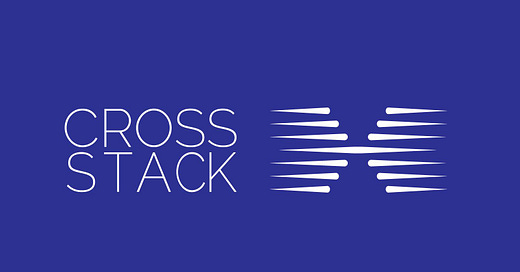There are over 10 million Facebook groups, with hundreds of millions of members. The groups range from political to professional to dating to personal hobbies. Most of these groups’ boards are open for all members to post on, but are moderated by a handful of moderators or group admins. These admins play a key role in maintaining the groups’ core values while continuing to build out usership .
Groups have been a big focus for Facebook over the past few years. As a means of rehabbing their image from the spread of disinformation on its platform stemming back to 2015, Facebook put an emphasis on the wholesome nature of its Groups feature. One televised commercial featured a Corgi Facebook Group and showed a group of Corgi owners meeting up on the beach to celebrate and connect their beloved pets.
Admins sink hours on hours into moderating and running their groups, but have limited ability to monetize due to Facebook’s policy on platform-wide distribution of advertising dollars. Patreon is an external platform that provides subscription options for groups / creators and collects payments on their behalf. However, external links to Patreon or similar monetization platforms are often buried in Facebook’s algorithm, leading to low conversion from the Facebook Group to other platforms that can actually provide financial means to the admins. In some instances, admins will try and post links as comments on a post rather than in the post itself, but Facebook has caught on to this as well.
From an advertiser’s perspective, Facebook groups are the holy grail. They are a targeted population with a clear affinity for whatever the group represents. For example, if you are part of a houseplant Facebook group, online sellers of houseplants, local houseplant stores and furniture companies who sell planting fixtures all would pay premiums to have access to the group’s collective attention. Advertisers could pay a higher cost per thousand impressions (CPM) because the conversion rate of the underlying population will likely be higher than a less targeted population.
Unlike YouTube, which shares its ad revenue with its creators for generating content and consumer attention, Facebook does not currently share revenue with its admins in the Group. That leaves admins in a tricky spot, limiting them to the following non-exhaustive list of monetization options:
1. Attempt to convert members to support admins via Patreon, with limited additional benefits provided to paying users
Unfortunately, only a small percentage of your audience will pay without further benefits
The admin is still reliant on Facebook to make sure the audience sees the call to action
2. Move your audience to a different platform and drive monetization on that platform
Moving your audience off-platform naturally shrinks the audience as not everyone converts (think moving members to Substack, Discord, Slack, etc.)
There is a chance Facebook depresses the call to action in its algorithm and reach is lessened
Once you move your audience you are likely still seeking for monetization opportunities on your own (no platform to automate or create programmatic monetization)
3. Create curated sub-communities that are paid with additional benefits:
This will only target a small, hyper-engaged segment of the audience, but for those looking for further community within an affinity or professional group this is a great benefit
Paid membership enables members to participate in live or virtual meet-ups, join private discords, Slacks, Facebook Groups, Telegram channels, etc.
While some of these options are powerful from a monetization perspective, there is still no way for admins to plug-in an audience and automatically monetize like YouTube. For those unfamiliar with YouTube monetization, YouTube sells advertisements against creators’ videos through its programmatic advertising exchange and splits the revenue generated from those advertisements, putting the burden of monetization on the platform rather than the creator.
There are some early stage companies working on solving this problem such as Mesh Communities and Vibely, which provides hope that community building can be a predictable business model that can attract capital. For example, Mesh is offering a social platform with ad monetization options for community admins. Mesh will sell ads on behalf of the community (all of the advertisers must be approved by the community leaders) and share the revenue generated, thereby removing the burden from the admin to generate revenue.
As many direct-to-consumer e-commerce companies have gone from purely virtual to brick-in-mortar through injection of significant capital, online-based communities may also look forward to an evolution of interaction of its own following investment dollars flowing into the space. The challenge at the moment is predictable monetization. If that piece can be solved, equity investors can more clearly see a path to scale and lenders can lend against predictable cash flow generated by the attention of the audience.
Beyond the economic arguments, online communities provide camaraderie, friendship, purpose, fulfillment and mitigate the growing loneliness and dejection facing many in this country and all over the world. While communities can be both positive and negative, capital injection can help buoy positive communities and further their impact and membership.
—
Subscribe to future posts here:
—
This is a personal blog collaboration. All views and opinions expressed are those of the authors, and do not reflect the views or opinions of any organizations the authors may be affiliated with. This website and the information contained herein is not intended to be a source of advice with respect to the material presented, and the information contained in this website does not constitute investment, tax, or legal advice. We make no representations as to the accuracy, completeness, correctness, suitability, or validity of any information on this site.




I wonder if it can work B2B too. Linkedin Groups can get fairly massive, but I've always found their engagement to be dubious at best. Might be worth a test.